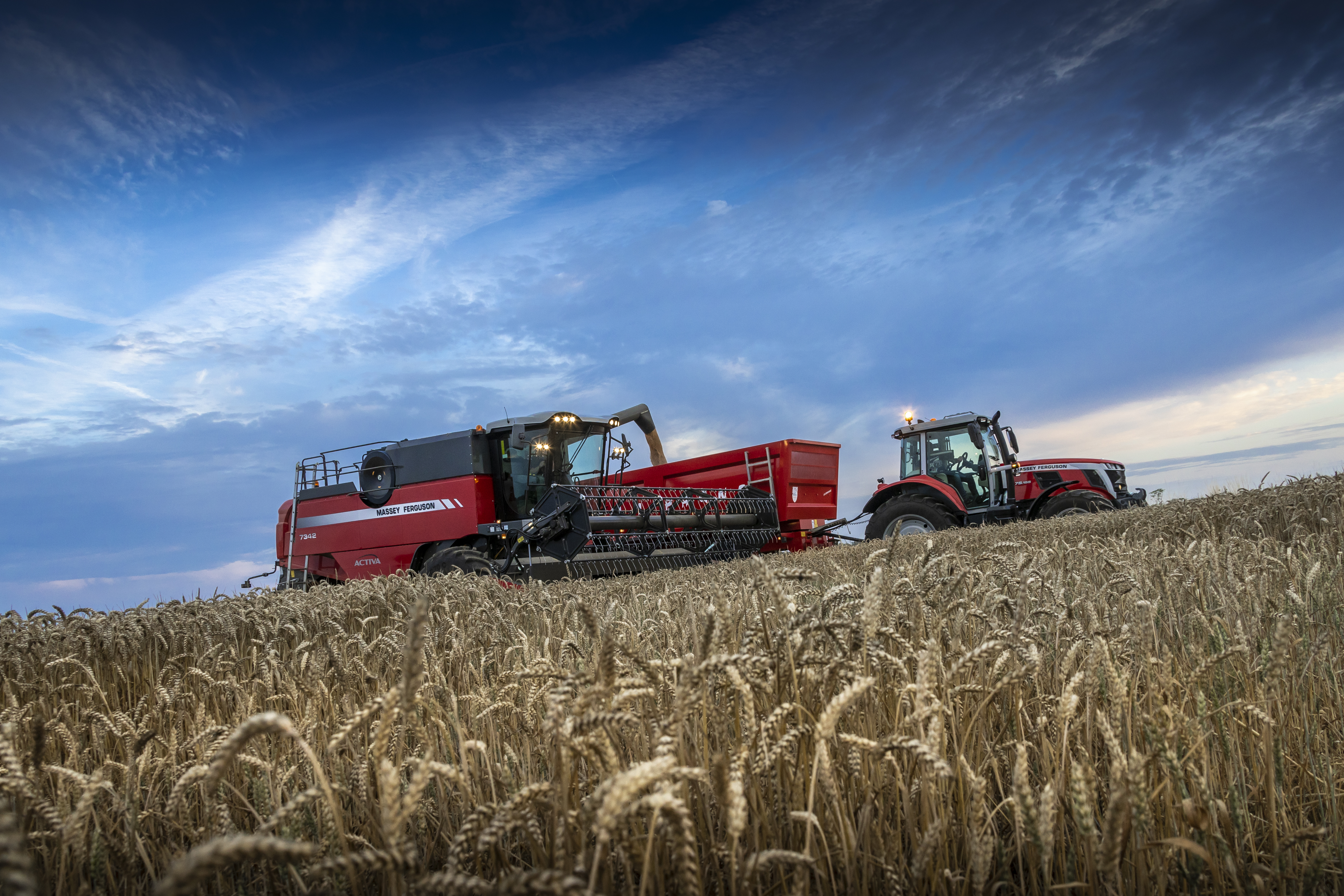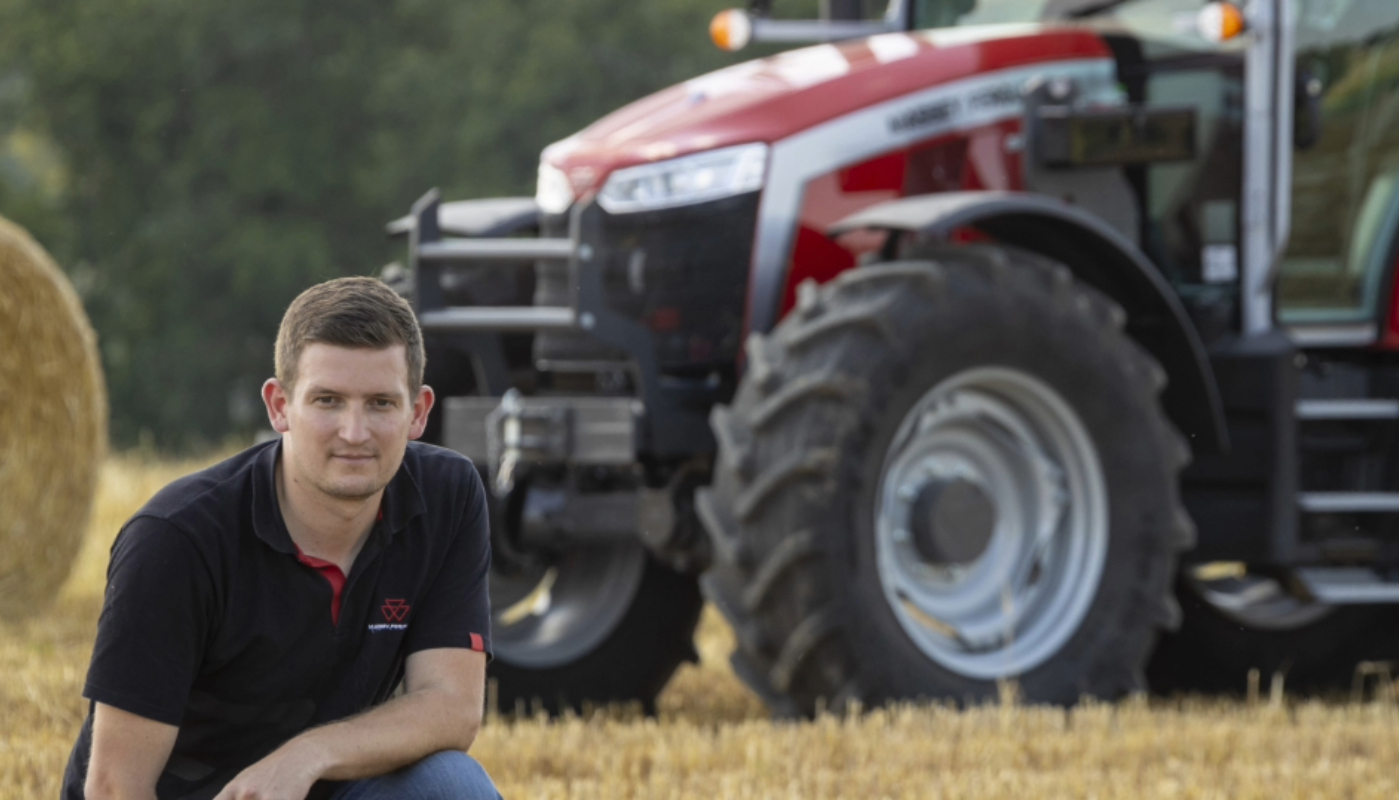State troopers are called upon to handle “just about anything,” says Chris Shrader, so having a farm to come home to is relief from a tough job.
The land Chris Shrader lives on today was a farm for three generations before he took it on in 1998. Chris remembers throwing hay with his grandfather on this property, near Belington, West Virginia, when he was a kid; “It makes you farm strong,” he laughs. That character-building is put to good use in his career as a West Virginia state trooper. Today, he’s the director of radio communications for the state police.
But even when on duty, it seemed he was never too far from farm life. Both of his kids grew up in 4-H, showing hogs. “I remember a county fair, climbing into the pen in full uniform to feed the kids’ hogs while they were in school,” he laughs. “Probably people were wondering … What is this state trooper doing feeding hogs?”
There are no hogs on the property at Shrader’s Sugar Creek Farms today, and the kids have moved on, too. Son and daughter entered the Navy; one a master at arms, the other a gunner’s mate.
Farm strong, you know.

But Sugar Creek is home to Black Angus cattle, horses (one that Chris’ daughter bought by saving up money from 4-H projects), some chickens, good native-grass hay, and a lot of hills. Chris walks the steep trails to check on his cattle or bring in his horses; he doesn’t even seem out of breath. “There’s hard work involved in it,” he says of his 80 acres, “but it gives you a little bit of relief to get away from the real world.”
- - -
Most of the work at Sugar Creek is centered on the cattle. Chris maintains a small herd and has a buyer for naturally raised beef, so while he says the herd gets a little bit of grain, they mostly graze in the summer and fall and get hay throughout the winter that Chris puts up from the farm. He also cuts and bales hay for neighbors.
The meadows at and around Sugar Creek have a native grass mix that includes orchardgrass, highly desirable for cattle. Chris used to try to get in more than one cutting, but has learned that he can keep his cattle fed longer and with better nutrient value by getting in a single cutting early and then “letting it grow,” he says. “We get that one cutting in, and then you can pretty much put your equipment up, save on fuel,” he says. The exception is some spraying here and there to keep meadows cleaner; multiflora rose is still an issue in the area.
“In the fall, we start to strip graze,” he says. “We move the fence about four feet a day. Last year, we didn’t start feeding hay until January,” he says.
Still, he’s a big believer in storing hay. In 2017, he went from square bales to larger, 4x4 round bales, and has some two years of forage stored. He likes the hedge against the unpredictability of weather or just the possibility being unable to make hay with work and life; he stores carefully and recommends FarmTek hay storage to keep hay out of the elements.
- - -
There are about 500 uniformed officers in the West Virginia state police force. Chris says in his career, he’s been called upon to do just about everything you can imagine an officer would do. He knew what the life was like; while being the fourth generation on the farmland at Sugar Creek, he’s also a second generation trooper.
“We are responsible for anything, from car wrecks, domestics, regular road work… We have aviation, we have canines, we have bomb squads. We have undercover units,” he says. Chris has been at it long enough to talk about retiring, but today, he’s focused on outfitting other troopers with what they need to get their jobs done on the road.
“There’s nothing on them when they come,” he says of the SUVs the troopers use as cruisers. “My role now is to make sure the younger guys coming up have the radio equipment, the radar equipment, the lights… all that on it, make sure they have what they need,” he says.
It seems, too, that Shrader exerts a bit of influence in farm equipment purchases as well. Several of his trooper friends also have small farms, and Chris has helped guide their tractor purchases over the years.
Many of Chris’ trooper friends have similar operations on their small farms, and the connection is hard to miss; why is farm life such a popular avocation among the ranks?
“It is a good therapy,” he laughs, but then a bit more serious: “You tell people on your days off, you want to be on a tractor, and they wonder why… It’s just calming to me. You’re not worried about anything else other than what you’re doing.”

He admits it’s still labor; there is work to be done at Sugar Creek. Chris looks forward to tackling some new fencing when time allows, and he takes vacation to put up hay. “You still have hard work to do, but it’s more of a peaceful situation. It’s just a nice place to unwind at the end of the day.”























Share